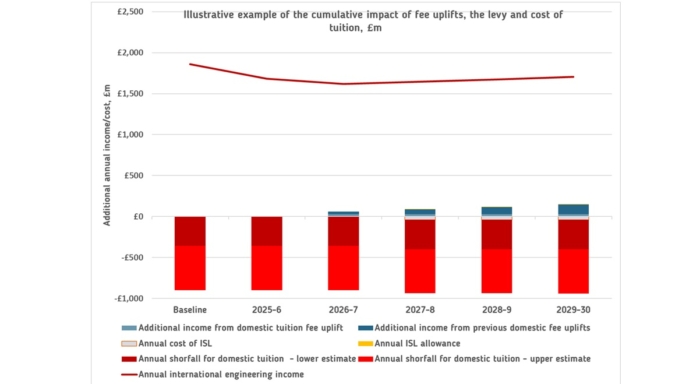The EPC response to this consultation can be found here.
The Institute of Apprenticeships and Technical Education is consulting on how the employer stamp of approval should be granted to qualifications funded through the Lifelong Learning Entitlement (LLE). They would like input on how to ensure they make the most of LLE and modular design to provide high quality, relevant and flexible qualifications.
The consultation will close on 1 April, 2024. The consultation is available on the IfATE website: Strengthening technical qualifications at levels 4 to 6 / Institute for Apprenticeships and Technical Education.
The EPC is proposing and Executive response. See more information on our approach to consultations.
Challenges of the Life Long Learning Entitlement
Some of the key factors that will remain a challenge if the LLE is implemented in the currently proposed format:
- The LLE, under the current format, is not really intended to reform currently available courses, which would place many pre-established engineer degrees on a ‘back-footing’.
- As stated by our Chief Executive, Johnny Rich, there will be limited attraction in this scheme under the current tumultuous economic environment, as it is undesirable for UK adults to burden themselves with greater levels of personal debt.
- Greater clarity is necessary to understand how the flexibility aspect of the LLE, a key cornerstone, will be implemented to effectively facilitate UK adults to continue working while studying.
- The credit transfer system within the scheme has significant problems, how are the modules standardised for transfer between universities? Who is setting this standardised system? Do providers have a requirement to accept students regardless of who their previous provider was?
How Should the EPC Approach the Life Long Learning Entitlement
With the recent announcement of the IfATE Lifelong Learning Entitlement Consultation, which has a closing date of the 1st of April, the following comments represent initial thoughts following the EPC’s Shifting Landscapes into HE webinar in November:
- Demand for (and the possible impact of) LLE-style provision has not been well researched. We do not have any evidence of risks or opportunities to engineering as a result of funding at a modular level. Is there demand for level 4 and 5 qualifications in engineering? Is a modular approach at these levels is likely to be regarded as part an ongoing journey to level 6 and 7?
- There is no evidence that the LLE will incentivise more people to study engineering at levels 4 to 6, including those who would not have otherwise studied because of the barriers they face in the current system. An increase in the number of modular students may not follow.
- An increase in part-time provision in engineering could be witnessed, but there is little evidence of demand for this in the current market.
- Rapid growth in L4/5 would be desirable in engineering but there is not currently evidence of demand (see apprenticeships) or supply.
- What about turning existing courses into stand-alone modules? If every module belongs to a parent qualification, how will those pursuing those qualifications be disaggregated from those pursuing a non-linear route? What about integrated masters. What will be the parent qualification?
- To comply with international standards, full-time accredited degree courses are unlikely to be broken up into stand-alone full-time modules, or to facilitate cross-provider attendance. In engineering there is existing mapping of learning outcomes across levels 4-6 (and beyond). But academics will need to assess the suitability of each course and take steps to convert it to work as a smaller stand-alone unit of learning. However,
- Engineering could potentially benefit from subject changeability through the adoption of try-before-you buy engineering modules at levels 4 and 5 as alternative routes to level 6 which would serve to introduce the subject which is largely not taught in schools. This could include study across more than one provider but mobility (of the part-time and mature students this is likely to appeal to) is likely to be seriously limited in most city and all rural areas.
- The government needs to provide clarity around is the ability to transfer modules between providers, little has been discussed regarding the establishment of this system and there is a risk that it will fall between silos of responsibility placing extensive burden on the HE sector.
- Should there be more provision for private businesses to partner with the government or higher education providers to sponsor, specifically post-21 aged students, as this would increase the likelihood of an increased uptake.
If you have questions or comments in regard to this scheme, please post below, or contact us.




